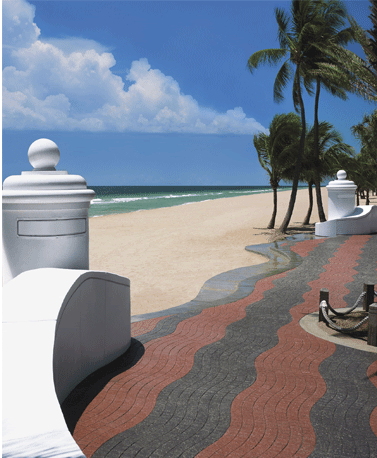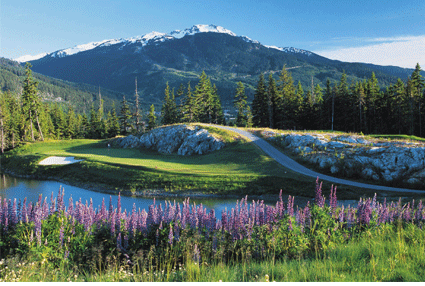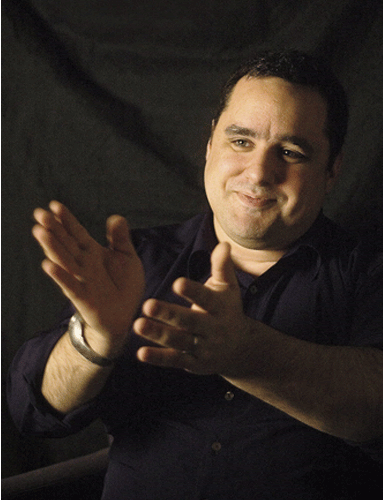
Developing countries must pursue strategies that don’t kill the golden goose of tourism but also diversify their economies.
 Andrew Zolli:
Andrew Zolli:
The Road Ahead
Futurist Andrew Zolli has a remarkable ability to connect the dots and sift through the lightning-quick changes that are transforming the world at the confluence of technology, sustainability and globalism. His foresight and strategy firm, Z + Partners, helps some of the world’s top organizations and governments navigate global change.
By: Keith Bellows*
Zolli is a National Geographic Fellow; curator of Pop!Tech, a leading idea forum; and a board member of BAM (Brooklyn Academy of Music) and Worldchanging.com, which tracks the future of sustainability. And, yes, he travels a lot.
You spend your time spotting trends. What are some of the key areas you’re tracking?
We’re looking at technology, of course, along with urbanization, health and environmental issues, and poverty. We’re identifying trends that will impact life in general, but many will change the nature of travel. For example, when you look at technology, you see that we’re becoming a more globally fluid society. The Millennials, young people coming out of high school and college, are more socially connected than any generation, in part because they have digital tools to help them easily join and form social alliances.
One of the by-products of increased global connectivity is that smaller groups of people can forge coherent forms of identity. So, you get the Basque net, the Chechen net, the
|
|---|
Will cities drive more travel trends?
We’re living at the dawn of not just the urban century, but as far as we can tell, the urban millennium.
Cities in
It seems that health and travel are becoming soul mates. We will travel to get healthier and get healthy to travel more. Thoughts?
Already people are connecting health care and tourism -- I want to get a nose job, have fat sucked out of me, and then I’d like to sit on the beach for three weeks and go snorkeling because I feel better.
In many countries around the world, families are having fewer children, which, combined with increased longevity, means the ratio of younger people to older people is changing. When a society’s average age increases, you get a lot fewer people who look like marathon runners, a lot more people who are overweight. And with that comes an increase in the incidence of diseases like diabetes.
Fortunately, there is a revolution in health care technologies. For example, a new toilet has been developed in
And so, health tourism -- which is what we think folks did back in the 19th century when they traveled to take the waters -- will thrive.
You’ve said our consumption outstripped our ability to regenerate resources in 1980. Travel offers a similar conundrum: We may over-consume and kill the places we love most. Can we reverse the former and avoid the latter?
We are eating our life-support systems. The situation is dire, and it requires us to organize in ways that are planetwide. Large-scale organization is not something we are very good at, nor something we have done. Collaboration necessitates that we each make sacrifices.
Back in the 1970s, we were worried about the explosive impact of our species on the planet. What the limits-to-growth crowd did very well was to introduce the idea of understanding the planet’s systemic relationships. What they did a poor job of was understanding humans’ innate inventiveness.
I am hugely bullish on our adaptability, our creativity in meeting the challenges we face. More technologies addressing sustainability problems will be released in the next ten years than have been released in the previous century. When those start to seep into society, our challenge will be to create an awareness that prompts people to say, “I want that in my house. I want that to be part of my lifestyle.” And that will happen.
Which will be more important in making that happen -- government or private enterprise?
A. It will be a combination. In the late 1970s or early 1980s, we began to deregulate the marketplace. That’s when we began this great chapter of globalization. We curbed the power of governments to be effective rule-setters, so much so that today some companies actually argue for more regulations to govern markets.
So you start to see General Electric and DuPont support a carbon cap-and-trade system and
This is the century in which humanity’s long-term sustainable future will be decided. The real reason for optimism is that we all will bring our A-game. Every time you think you know what human beings are capable of coming up with, that is the moment in which you are guaranteed to be surprised.

We need alternatives to airline travel. Do you see the revolution in high-speed rail -- which will significantly reduce carbon emissions -- coming to the
We certainly have nothing like what the Japanese or the French have. If you could build that kind of high-speed infrastructure in the
It is actually a pretty good experience. But I’d advocate rail travel on other grounds. Unlike many forms of travel, going by rail feels like travel, not simply motion from place to place. I have friends who just signed up for a slow train through the
What will the impact of tourism be on poor countries over the next couple of decades?
These countries have a short-term opportunity to create an infrastructure that enables tourism. But they have an associated problem: Establishing that infrastructure can actually remove money from the local community because the global entities that invest to attract travelers too often take their profits elsewhere.
So how do these countries meaningfully redirect the benefits of tourism so they don’t kill the asset? Dereck Joubert, the famous wildlife photographer, says it well. He wants the people who live where he works in
Developing countries must pursue strategies that don’t kill the golden goose of tourism but that also diversify their economies. After all, places that offer only tourism are the least interesting places in the world.
Where do you go to retreat?
I experience great moments of peace in the middle of
Retreat for me is a combination of really deep mindfulness and a feeling of gratitude. And you can have that experience anywhere on Earth as long as you find a quiet place within. Retreat is when a stillness happens inside you and you’re aware of the dynamism of the incredible things around you.
*Keith Bellows is the editor of National Geographic Traveler.
